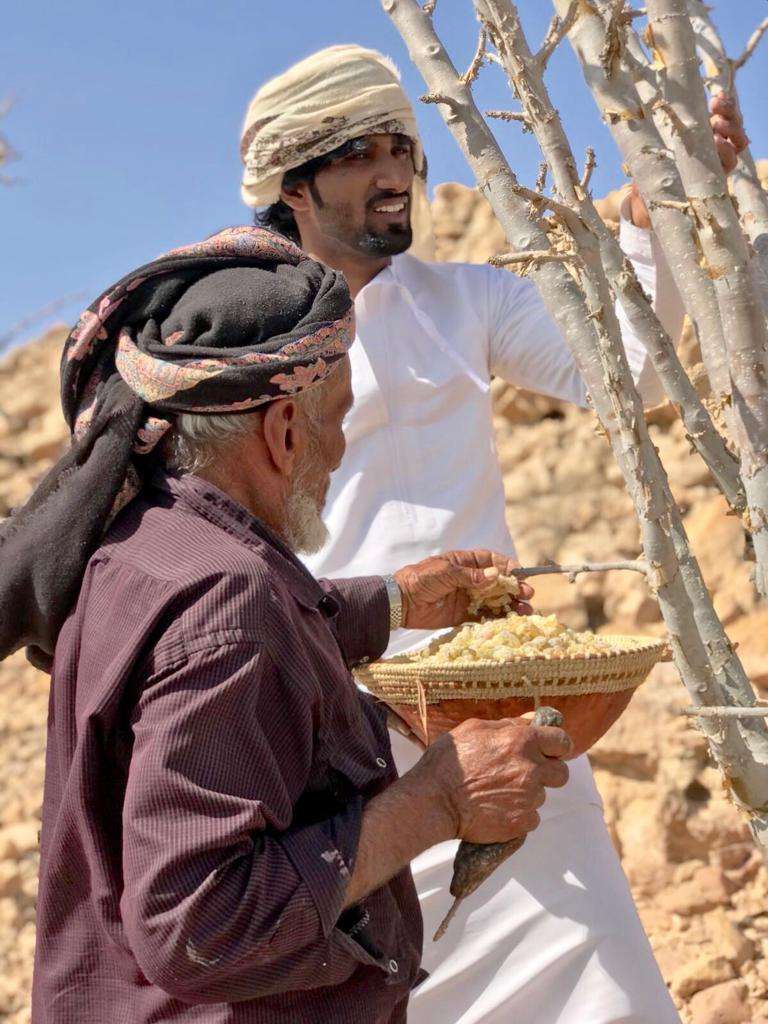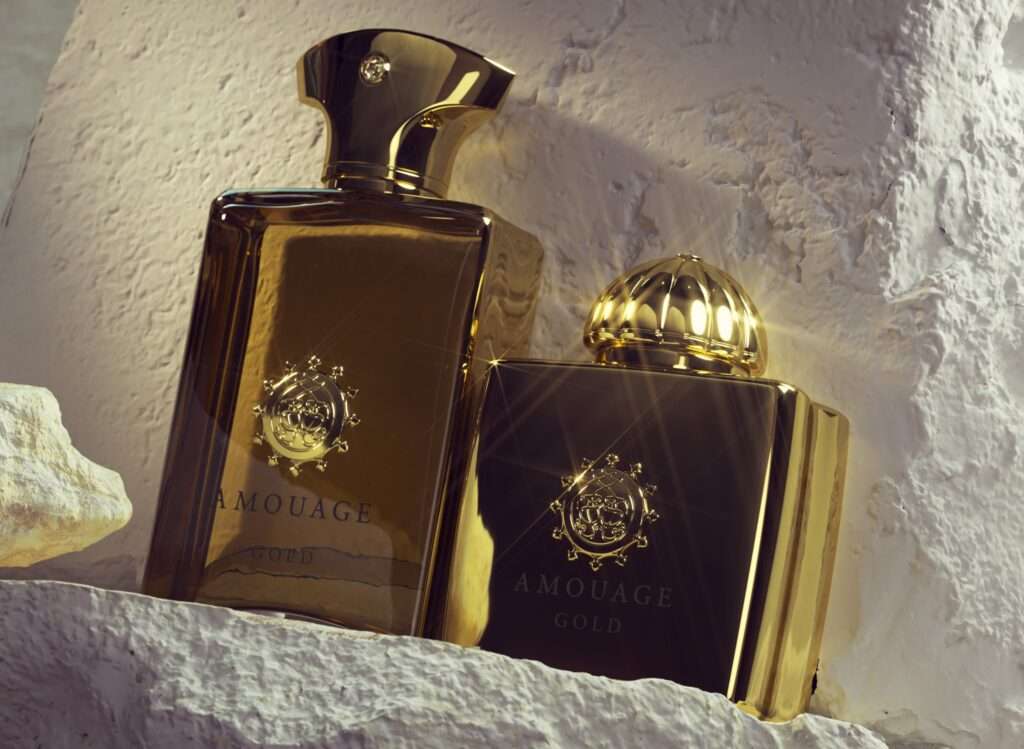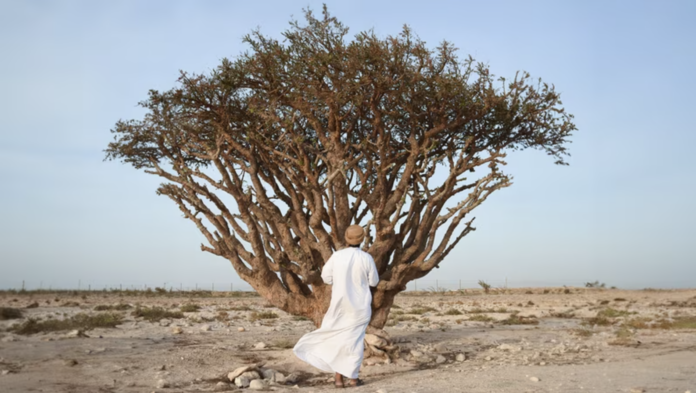Omani fragrance brand, Amouage, has announced the inaugural harvest of protected frankincense trees in Wadi Dawkah, a UNESCO-protected World Heritage location in Oman.
The rich, aromatic sap from the ancient Omani frankincense trees, integral to the label’s perfume, is renowned as the finest frankincense in the world due to its rarity and historical value — once seeing it more valuable than gold.
The Omani frankincense, Boswellia sacra, known around the world for its fragrant honey and lemon-like scented resin, can only be harvested twice a year. Wadi Dawkah, the caravan haven at Shisr, and the abandoned ports of Khor Rori and Khor Al-Baleed, all part of the once vibrant frankincense route, now fall under UNESCO’s stewardship in an effort to safeguard the trees for future generations.
Amouage first announced the effort last September. The fragrance label signed an historic partnership with Oman’s Ministry of Heritage and Tourism for the development of Wadi Dawkah in the Southern Governate of Dhofar. The 5-kilometer UNESCO World Heritage site is home to hundreds of centuries-old frankincense trees. The project also features a visitors’ center and a hub for education and tourism that align with the fragrance label’s sustainability strategy.

The harvest project will also support the forthcoming generation of frankincense farmers by providing the necessary skills for cultivation. A team of young Omanis will work under the supervision of a Dhofari foreman and three experienced elders from Thumrait, a city known for frankincense farming.
“It is our duty as caretaker of this important UNESCO World Heritage Site to care for the land, its traditional inhabitants and the culture,” Sayyid Khalid bin Hamad Al Busaidi, chairman of the board of directors for Amouage, said in a statement. The chairman says the primary objective is to foster “sustainable and conscious regeneration of frankincense trees.”
Frankincense has two specific harvest windows — between March and May and between September and October. The resin holds immense cultural, religious, and economic value. Its cultivation and collection process has been an integral part of societies across the Arabian Peninsula, East Africa, and India for millennia. However, the exploitation of frankincense resources raises several concerns about sustainability and the preservation of this precious commodity.
The harvesting process involves making incisions into the Boswellia tree bark, from which the resin exudes and hardens into ‘tears’ of frankincense. These ‘tears’ are then carefully collected by harvesters. Over-exploitation has led to destructive harvesting methods that include making deeper cuts into trees, which can lead to their premature death.
High global demand for frankincense threatens the long-term sustainability of commercial frankincense production. Frankincense trees play a crucial role in their ecosystems, from maintaining soil integrity to providing shelter for a host of insects and birds. Consequently, exploitation can have severe environmental repercussions.

Addressing this exploitation requires robust and enforceable regulations on frankincense harvesting, the promotion of sustainable farming practices, and raising global awareness about the cultural and environmental importance of these trees.
Amouage, established in 1983 as “the gift of kings,” continues to fulfill its founder Al Busaidi’s proposition to Sultan Qaboos: introducing the global audience to Oman’s fragrance heritage through ethical means. This commitment is upheld as the brand expands the reach of the peninsula’s unique heritage through its new partnership with UNESCO.
“This is an opportunity to create a compelling tourism and cultural destination and drive the international promotion of the unique treasures of the Dhofar region. For Amouage, respecting nature means protecting the ecosystems that have gifted us, and by doing so we ensure that generations to come can continue to enjoy and experience the beauty of our fragrances,” Al Busaidi said last year when the partnership was first announced.
Amouage CEO Marco Parsiegla called the partnership a “remarkable milestone” last year as Amouage becomes a “guardian of this profound organic frankincense land of outstanding universal value that will contribute to our fragrances.” Parsiegla said the project will focus on conscious regeneration and make Wadi Dawkah a “center of gravity for Oman’s frankincense sustainable development.”
Related on Ethos:


